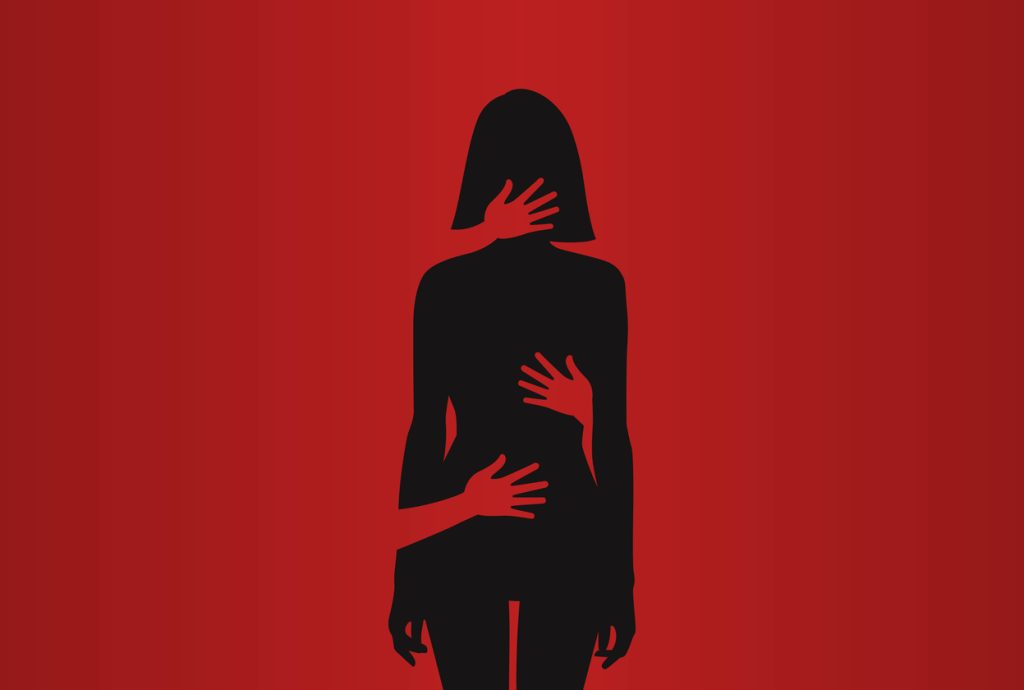
The music industry has long stood at the intersection of fame, influence, and controversy. In recent years, a growing number of musicians charged with sexual abuse have sparked outrage and legal battles that ripple far beyond courtrooms. This issue has pushed the industry into the spotlight, raising complex questions about responsibility, image management, contractual obligations, and justice.
Understanding how labels, agencies, venues, and streaming platforms respond from a legal perspective offers insight into a deeply entrenched system attempting to grapple with accountability. In this article, we examine the legal frameworks surrounding allegations, industry reactions, and the broader implications of harboring or disassociating from musicians accused or charged with sexual abuse.
The Rise in Allegations and the Legal Burden of Proof
While abuse in the entertainment world isn’t new, recent decades have seen increased transparency, partly due to social media and movements like #MeToo. When musicians are charged with sexual abuse, the legal process begins with gathering evidence, victim testimony, and criminal filings. But unlike public opinion, the law requires a burden of proof, often setting a high bar for conviction.
Defendants are presumed innocent until proven guilty, which often complicates how the music industry should react in real time. Should contracts be suspended? Should music be pulled from platforms? These are not just moral decisions — they’re legal ones.
Legal Protections for Accused Artists
The United States legal system protects individuals from career-impacting punishment before a guilty verdict. Labels and producers must tread carefully. Terminating an artist’s contract prematurely, without sufficient legal grounds, may result in breach-of-contract lawsuits.
Some artists accused of misconduct have sued for defamation or damages after being dropped, despite not being convicted. This legal tension makes it difficult for companies to swiftly act against musicians charged with sexual abuse, even when public outcry is deafening.
Morality Clauses: An Industry Defense Tool
Many recording contracts now include “morality clauses” — provisions that allow companies to end contracts if the artist engages in behavior that might harm the brand’s image. When a musician is facing charges of sexual abuse, these clauses become a primary method of termination or suspension.
However, enforcing these clauses can be risky. If challenged in court, the clause must be clear, reasonable, and consistent with case law. Companies must show that continuing association with the artist would demonstrably damage their reputation or financial standing.
Impact on Record Labels and Business Partnerships
From a legal standpoint, labels risk liability when they continue promoting artists facing serious allegations. Stakeholders, investors, and the public may pursue actions if they believe the label is complicit in ignoring misconduct.
Many brands sever ties with musicians charged with sexual abuse to protect their image and reduce legal exposure. This often involves freezing marketing efforts, delaying album releases, or canceling tour sponsorships. These decisions are often guided by legal counsel, weighing risk exposure, potential contract breaches, and reputational damage.
Streaming Platforms and Content Removal
Whether or not to keep a charged artist’s catalog online is a controversial decision. Streaming platforms operate under contracts and licensing agreements, which might not always contain morality clauses.
Removing an artist’s music pre-conviction can result in breach of contract claims or even censorship debates. Legally, these platforms walk a tightrope, aiming to respect victims and public sentiment without violating existing agreements with rights holders.
Spotify’s attempt in 2018 to implement a “hateful conduct” policy — targeting artists accused of misconduct — was quickly reversed after legal and public backlash. This illustrates how difficult it is to apply uniform standards without legal clarity or precedent.

How Touring and Venue Contracts Are Affected
Touring agreements are often terminated or suspended when an artist is charged with a serious offense. Venues, promoters, and sponsors don’t want the negative PR or potential protests.
Legally, promoters may invoke force majeure or “moral clause” provisions to cancel events. While fans may feel disappointed or conflicted, venues prioritize legal risk management and public safety.
In cases where there are threats of boycotts or demonstrations, local municipalities may also get involved, citing public safety laws and permitting requirements as grounds for canceling performances by musicians facing sexual abuse allegations.
Public Relations Versus Legal Responsibility
The court of public opinion frequently acts faster than the legal system. Artists might be “canceled” before any charges are proven in court. This raises questions of due process, and many in the industry face pressure to act even when the legal outcome remains undecided.
Though morally understandable, this tension can create legal dilemmas. Labels and agencies that act on public pressure without legal justification may later be sued for damages, wrongful termination, or defamation.
The balance between PR and legal caution is delicate and requires precise, case-by-case decision-making. Legal advisors often guide this process, ensuring companies stay compliant while managing fallout.
Precedent Cases and Industry Outcomes
Historically, several musicians who have been charged with sexual abuse have experienced vastly different outcomes depending on their legal teams, contract terms, and public personas.
In some cases, careers were permanently derailed. In others, artists returned after legal settlements or cleared charges. The disparity illustrates the absence of a uniform response and the reliance on contract law and damage mitigation strategies.
For instance, musicians charged with sexual abuse like R. Kelly or Marilyn Manson have faced ongoing legal challenges that influenced how other entities within the industry handle such cases. The fallout from these cases has helped define new protocols and standard operating procedures.
For a deeper look into artists facing such allegations, including legal timelines and case specifics, please refer to this comprehensive article on musicians who have been charged with sexual abuse.
Reputation Management and Legal Strategy
Artists often hire PR firms and legal teams to control the narrative following charges. These efforts include social media statements, interviews, or suing accusers for defamation in civil court.
These strategies, while controversial, are completely legal. However, once criminal charges are filed, anything said publicly may be used in court. Lawyers typically advise against public statements unless carefully crafted.
The music industry must navigate these waters delicately. If the accused speaks out and is later convicted, their words can severely impact appeal options. If innocent, remaining silent can also damage public perception.
Victim Advocacy and Label Obligations
As public support for survivors grows, many labels and entertainment agencies are compelled to show solidarity with victims. Some have created internal review boards or partnered with legal firms to investigate claims.
From a legal standpoint, if a company ignores abuse allegations and continues profiting from the accused, they may be open to civil litigation. Victims can sue not only the perpetrator but also enablers — including labels, tour managers, or collaborators — under civil conspiracy or negligence statutes.
This has led many companies to revise their legal compliance and reporting structures, training employees to detect, report, and document any misconduct.

Legislative Reform Influencing Industry Practices
In light of high-profile cases, lawmakers in several states have introduced bills that could alter how industries handle abuse allegations. Some bills seek to extend the statute of limitations, while others target organizations complicit in covering up abuse.
The music industry is watching these developments closely. Any new laws that allow victims to sue entities (not just individuals) would drastically shift how labels and management firms approach misconduct allegations.
A good resource for understanding ongoing legislative changes is Congress.gov, which provides updates on federal efforts tied to sexual abuse reform.
Artist Unions and Their Legal Roles
Musicians’ unions and guilds play an increasing role in defending accused members or guiding legal protocols. While unions primarily protect worker rights, they must also balance moral standards and legal obligations.
When a musician is charged with sexual abuse, unions may offer legal support or arbitration assistance but refrain from public endorsement. Legal neutrality is often preferred until a verdict is reached.
Nonetheless, these bodies often push for clearer industry guidelines and updated contracts to reflect modern ethical and legal expectations.
International Legal Differences
When artists are charged abroad, extradition laws, diplomatic relations, and jurisdictional challenges arise. For example, an American artist charged in Europe must navigate both local and U.S. law.
In some jurisdictions, charges alone are enough for asset freezes or travel restrictions. Industry managers must consult international legal experts to ensure compliance when musicians are facing sexual abuse charges overseas.
The complexity of international law also affects digital distribution rights and global licensing agreements.
The Role of Independent Labels and DIY Artists
Independent artists face unique challenges. Without corporate legal teams, they must defend themselves in court, manage PR, and keep their careers afloat. Some face crowdfunding bans, tour cancellations, or rejection from festivals due to pending allegations.
In these cases, third-party collaborators may be legally at risk if they continue working with the accused. As such, many engineers, promoters, and session artists decline work with musicians involved in sexual abuse allegations, fearing legal or reputational backlash.
The Long-Term Legal Fallout
Even if charges are dropped or artists are acquitted, long-term damage often remains. Labels might hesitate to renew contracts. Streaming services may limit promotion. Collaborators may walk away.
The shadow of legal allegations follows many artists for years. This underscores the importance of legal transparency, documentation, and risk-mitigation protocols at every level of the industry.
While some artists rebuild slowly, others fade into obscurity, not from guilt, but from reputational exhaustion and legal complexity.
Conclusion
The issue of musicians charged with sexual abuse is not just a moral reckoning — it’s a legal one. As more allegations surface, the music industry must reconcile legal caution with social accountability. Contracts, courtrooms, and public perception all converge, forcing a redefinition of what justice and due process look like in entertainment.
Labels, platforms, and fans are no longer passive observers. Whether motivated by ethics, legal exposure, or both, the industry now plays an active role in shaping outcomes for those accused and those harmed.
